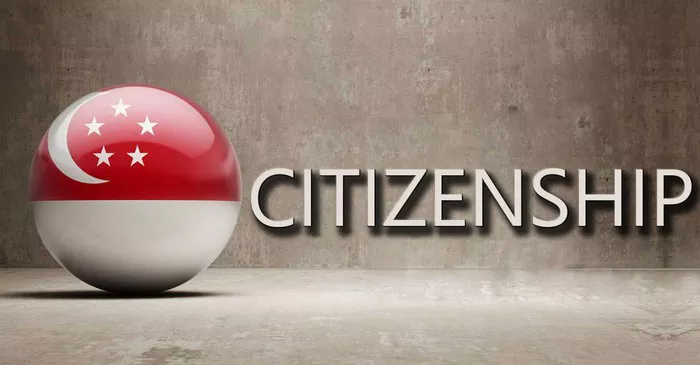Singapore, known for its economic vibrancy, cultural diversity, and high quality of life, attracts individuals from around the world who seek to make it their home. For those considering becoming a Singapore citizen, the process involves several steps and criteria that must be carefully navigated. This article provides a detailed guide on how to obtain Singapore citizenship, covering eligibility requirements, application procedures, considerations for different categories of applicants, and insights into Singaporean citizenship benefits and responsibilities.
Understanding Eligibility Criteria
Before embarking on the journey to Singapore citizenship, it’s crucial to understand the eligibility criteria set by the Singaporean government. Citizenship in Singapore is primarily based on the following factors:
Residency Requirements: Applicants must have been a Permanent Resident (PR) of Singapore for a specified period before applying for citizenship. Generally, this period is at least two to six years, depending on the applicant’s circumstances.
Employment and Economic Contribution: The Singapore government values individuals who contribute economically to the country. Therefore, having stable employment, entrepreneurial activities, or investments in Singapore can strengthen an application.
Family Ties: Spouses and children of Singaporean citizens may be eligible for citizenship under certain conditions, including proof of marriage or parentage and the fulfilment of residency requirements.
Integration and Assimilation: Applicants must demonstrate a commitment to integrating into Singaporean society, including proficiency in English or one of Singapore’s other official languages, adherence to local customs and laws, and participation in community activities.
Application Procedures: Step-by-Step Application Process
The process of applying for Singapore citizenship involves several key steps:
Pre-Application Preparation: Gather all necessary documents, such as identity proofs, educational qualifications, employment records, and evidence of residency.
Submission of Application: Complete the citizenship application form and submit it along with the required documents to the Immigration and Checkpoints Authority (ICA) of Singapore.
Document Verification and Background Checks: ICA will review the application and conduct checks to verify the information provided.
Interview and Citizenship Journey: Some applicants may be required to attend an interview to assess their eligibility and integration into Singaporean society.
Approval and Oath of Allegiance: If approved, applicants will attend a citizenship ceremony where they take the Oath of Allegiance to Singapore.
Categories of Applicants
1. Professionals, Skilled Workers, and Investors
Professionals, skilled workers, and investors who have made significant economic contributions to Singapore may qualify for citizenship more quickly than other applicants. This category includes:
Employment Pass Holders: Foreign professionals holding Employment Passes and contributing to Singapore’s economy.
Investors and Entrepreneurs: Individuals who have invested substantially in Singapore or established successful businesses.
2. Spouses and Children of Singapore Citizens
Spouses and unmarried children (below 21 years old) of Singapore citizens are eligible to apply for citizenship under family ties provisions. The process typically involves demonstrating a genuine relationship and fulfilling residency requirements.
3. Artistic and Sporting Talent
Internationally recognized artists, performers, athletes, and sports professionals who have contributed significantly to Singapore’s cultural or sporting scene may be eligible for citizenship under this category.
SEE ALSO: NAVIGATING SINGAPOREAN IMMIGRATION: ALL YOU NEED TO KNOW
Benefits of Singaporean Citizenship
Becoming a Singapore citizen offers numerous benefits, including:
Right to Vote: Citizens can participate in national elections and have a say in shaping the country’s future.
Access to Government Services: Citizens have access to a wide range of government services, including healthcare and education subsidies.
Greater Job Opportunities: Some positions in the public sector and government-related industries are reserved for citizens.
Visa-Free Travel: Singapore citizens enjoy visa-free or visa-on-arrival access to many countries worldwide.
Retirement Benefits: Eligibility for Central Provident Fund (CPF) contributions and withdrawals, which support retirement planning.
Responsibilities of Singaporean Citizens
Alongside the benefits, Singaporean citizens also have certain responsibilities:
National Service: Male citizens are required to serve in the Singapore Armed Forces (SAF), Police Force (SPF), or Civil Defense Force (SCDF) upon reaching the age of 18.
Civic Duties: Citizens are expected to uphold Singapore’s laws and contribute positively to society.
Active Citizenship: Contributing to community activities and nation-building initiatives.
Conclusion
Obtaining Singapore citizenship is a significant decision that requires careful consideration of eligibility criteria, application procedures, and the responsibilities and benefits associated with citizenship. By understanding these factors and preparing thoroughly, individuals can navigate the process effectively. Singapore’s citizenship policies reflect its commitment to integrating newcomers who can contribute to its dynamic society and economy. Whether through economic contributions, family ties, or cultural and sporting achievements, Singapore welcomes individuals who share its vision and values.
In conclusion, the journey to Singaporean citizenship is a rewarding one for those who meet the criteria and are willing to commit to Singapore’s future. By following the guidelines outlined in this article and seeking appropriate advice from immigration professionals or government authorities, prospective applicants can embark on this path with confidence.


